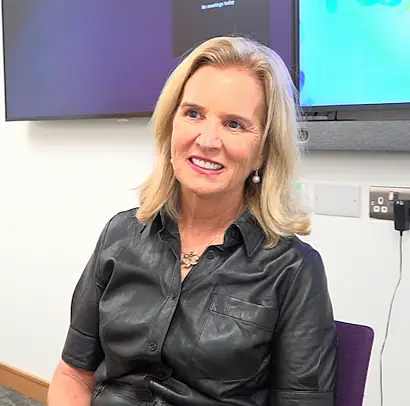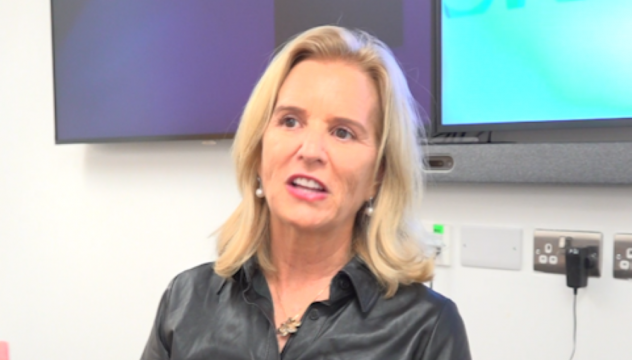Kerry Kennedy has said it is “confusing and an outrage” that Northern Ireland does not have a functioning devolved government.
She also stated the North has made “extraordinary gains” in the 25 years since the signing of the Good Friday Agreement.
Ms Kennedy is the president of Robert F. Kennedy Human Rights, a non-profit human rights advocacy organisation, and has worked in Northern Ireland as well as other conflict-affected areas such as El Salvador, Gaza, Kenya and South Korea.

Ms Kennedy told the PA news agency that the lack of devolved government was most severely impacting the poorest in Northern Ireland.
“It is so confusing and such an outrage that the people here don’t have representation and I think that would make a big difference because I think that that leads to budget shortfalls that are impacting all the extraordinary gains that have been made since the Troubles,” she said.
“And it’s got its harshest impact again on the most marginalised, the poorest communities. So the first thing to do, you have to supply water, the government has to continue to build the roads.
“So the first thing that goes is childcare, which means women who can’t afford it can’t go to work. So that continues the cycle of poverty, interventions to stop femicide and all these mental health programmes to help people who have suicidal ideology and other mental health issues.
“And then that is exacerbated here in a way that it’s perhaps not in other countries because of intergenerational trauma.
“And so I think that those services are vitally important, and they’re the first to go when the politicians don’t aid and bolster the economy and bolster government services.”

Ms Kennedy said that despite some ongoing problems Northern Ireland had changed drastically since her last visit to the region.
“The last time I was here was 25 years ago and it is a completely different city,” she said.
“The police barricades that were basically everywhere have been removed, you can see people walking down the street and laughing and singing and going in and out of the establishments.
“Even the way people dress, they’re not dressed all in black any more the way I am today, but in brighter colours and there’s a cheerfulness and a sense of hope.
“But at the same time there are lots of underlying problems.
“Northern Ireland has a lower life expectancy than the rest of Britain by two years. It’s a place that has the highest rate of femicide in Europe. One of the highest rates of suicide, particularly among young men, so there’s still a long way to go and it’s really along class lines.
“So at the same time, there are these problems, there’s a tremendous amount of change. Two of the best universities in the world are here in Belfast.
“I think this is a place where it’s got a great reputation, and for good reason, of having a population that’s very, very well-educated and primed to go into the tech world, for instance.
“And then there’s been international investment, that’s really made a difference. There are over 1,225 international companies here.
“So what can the international community do? I think the first thing we need to do is invest, invest, invest, invest, invest in this incredible place, help people and when I say invest it can’t just be again, along class lines, it really has to focus on the people who are marginalised in society, and to give them hope and give their children a future.”
When asked how politicians can increase Northern Ireland’s investment potential, Ms Kennedy said: “First of all, you need to reconvene the parliament, that would be step one.”
The One Young World Summit has brought thousands of young people from across the world to Belfast to discuss global issues including climate change, and peace and reconciliation.
It has been recognised as part of the official celebrations of the 25th anniversary of the Good Friday Agreement.
Ms Kennedy said the summit being in Belfast was a “great sign” of how far the city has come since the end of the Troubles.
“That would not have been possible five years ago because conferences would think it’s too dangerous, not that it didn’t happen, but not with the fluidity and sense of possibility of today,” she said.
“And then I think it’s not that they’re just going to the conference centre, they’re staying in hotels, they’re going to nightclubs, they’re going to love the restaurants, they’re spending their money here and that’s so important for tourism and to revitalise the local economy.”
Ms Kennedy said the young people at the summit were “inspiring”.
“I think it’s amazing to see all these young people from every country who are making a difference on social justice, whether it’s access to healthcare or education or working in refugee camps. It’s pretty extraordinary,” she said.







